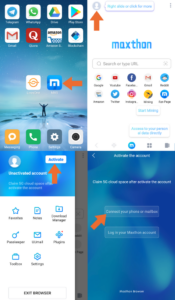As banks persist in shutting down their physical branches, an increasing number of individuals are turning to the digital realm of online banking. A recent survey conducted by National Seniors Australia revealed that 80% of older Australians are now engaging in online banking or paying their bills digitally, marking an 8% rise since the onset of the pandemic. However, this shift towards online banking has also led to a surge in scammers and hackers attempting to pilfer our hard-earned money. This raises important questions about the safety of online banking and how we can safeguard ourselves against these fraudulent activities.

So, what exactly is online banking? It provides a range of services similar to those you would find at a traditional bank branch but with the convenience of access from anywhere at any time. Through online banking, you can quickly pay bills, transfer funds between accounts, keep track of your account activity, view both recent and historical statements, as well as manage direct debits—whether establishing them or canceling them.
To get started with online banking, all you need is a smartphone, tablet, or computer. While most platforms are designed for user-friendliness, your bank should offer dedicated support to assist you through the setup process if you need more clarification about how to begin. Furthermore, it’s worth noting that online banking does not have to replace traditional methods entirely; instead, it can be used alongside them according to your preferences.
For instance, many savings accounts—such as the National Seniors Money Manager—offer options for both digital and mobile banking services like Apple Pay and Google Pay while still offering traditional services such as ATMs and debit cards. This flexibility allows you to choose how much or how little you want to integrate technology into your financial management while still having access to conventional banking resources when needed.
Is online banking secure? A multitude of banks provide sophisticated security measures designed to safeguard your finances from fraudulent activities on the internet. These measures often include specialised anti-fraud teams, cutting-edge online security technologies, and assurances that you will be reimbursed if your funds are unlawfully taken. If your money is lost due to a security breach on the bank’s part or if your credit card information is compromised, they are likely to reimburse you for those losses. However, if you inadvertently share your personal information with a scammer—whether through a phishing SMS, email, or phone call—recovering your funds may prove challenging and, in some cases, impossible. The same caution applies if you mistakenly send money to an incorrect account due to typographical errors; therefore, it’s wise to meticulously verify all details before finalising any transactions.

To enhance the safety of your online banking experience, consider these recommendations: First and foremost, create a robust and unique password that remains confidential. A strong password should consist of a mix of uppercase and lowercase letters, numbers, and symbols while avoiding any easily guessable personal information. It’s also advisable not to reuse passwords across different platforms or save them in your web browser. Furthermore, sharing your banking password should be limited strictly to authorised individuals only.
Another vital step is keeping your computer updated. While updates can feel burdensome at times, they often contain crucial security patches that protect against vulnerabilities. Therefore, it’s essential to install updates promptly when prompted by your device and ensure that any firewall or antivirus software is current with automatic updates enabled whenever possible.
Implementing two-factor authentication adds another layer of protection for accessing your accounts. This process typically requires you to enter both a username and password along with a verification code sent directly to either your phone or email as an additional safeguard against unauthorised access. By requiring this second step for login attempts, it becomes significantly more difficult for hackers to breach your account without also having access to either one of those devices.
By adhering to these precautions and remaining vigilant about potential threats online, you can enjoy the convenience of online banking while keeping yourself protected from risks associated with digital transactions.
When it comes to banking, it’s wise to steer clear of public Wi-Fi networks. While accessing the internet at places like shopping centres, cafes, or other communal spots may seem convenient, it poses significant security risks for online banking and transactions. Instead, consider using your mobile data whenever possible and reserve Wi-Fi usage for trusted networks only. Additionally, avoid conducting any banking activities on shared computers—such as those found in libraries or workplaces—as they can be particularly vulnerable.

One primary concern that deters many older Australians from embracing online banking is the prevalence of scams and fraudulent activities. Fortunately, steering clear of these threats is often simpler than one might assume. Always remember to safeguard your personal information; never disclose your credit card details or online account credentials over the phone unless you initiated the call using a verified number. Similarly, be cautious with emails—your bank will never request you to click on links to provide sensitive information like usernames or passwords.
If you share your account details with a scammer, recovering any stolen funds may prove extremely difficult. To protect yourself further, take a few precautionary measures: refrain from opening emails or SMS messages from unfamiliar sources; if you do open such messages, avoid clicking on any embedded links. When receiving calls from unknown or blocked numbers, let them go to voicemail—if they’re genuine callers, they will likely leave a message explaining their purpose.

You can also check online for complaints about suspicious numbers before deciding whether to return the call. If you need more clarification about a communication claiming to be from your bank, reach out directly using their official contact number for verification purposes. Should you discover any unauthorised transactions in your account or suspect fraudulent activity taking place, report these incidents immediately to your bank and change your password without delay. Most banks offer an after-hours hotline specifically for reporting fraud; some even allow you to temporarily lock your account through their online services if you sense something amiss.
By following these steps and remaining vigilant about your financial security while navigating the digital landscape of banking and payments, you can significantly reduce the risk of falling victim to scams and enjoy peace of mind in managing your finances.

Online banking offers several advantages that enhance the way you manage your finances. One of the primary benefits is the ability to view your account information instantly and in real-time. There’s no need to make a trip to an ATM or interact with a bank teller just to check your balance; all you have to do is log into your online banking platform, whether it’s an app or website, and you can see everything live.
Moreover, online banking provides the convenience of accessing your account from virtually anywhere at any time. As long as you have internet access or mobile data, managing your finances is possible no matter where you are—day or night.
Setting up automatic payments is another significant perk. If you have regular monthly bills, automating these payments ensures they are permanently settled on time without any extra effort on your part.
However, there are certain situations where visiting a physical bank is necessary. For instance, cash transactions—such as deposits or withdrawals—cannot be completed online; you’ll need to go to a branch for these actions or use an ATM for withdrawals.

Additionally, some banks offer unique in-person services like Bank@Post, which allows customers to use their debit cards for various transactions over the counter, including deposits and balance inquiries.
When it comes to more complicated financial matters, visiting a bank in person can simplify things. For tasks such as changing signatories on accounts or opening new accounts, many banks still require customers to handle these processes face-to-face at a branch. However, some institutions like National Seniors Money Manager do provide options for setting up new accounts online or via phone calls when needed.
Maxthon
Maxthon has set out on a bold journey to bolster the security of web applications, utilising a variety of cutting-edge techniques designed to safeguard users and their sensitive information. At the heart of this endeavour lies an array of advanced encryption protocols that form a robust barrier around the data exchanged between individuals and online platforms. This meticulous approach ensures that crucial information, such as passwords and personal details, remains securely encrypted during transmission, effectively thwarting unauthorised access attempts.
Yet, Maxthon’s commitment to security goes well beyond just encryption; it recognises the necessity of staying ahead of new threats by continuously updating its protective strategies. The browser adopts a proactive stance, delivering regular updates that swiftly tackle any vulnerabilities that may emerge in the ever-evolving landscape of cybersecurity. Users are strongly encouraged to enable automatic updates so they can effortlessly receive the latest patches and enhancements.
Another significant aspect of Maxthon’s security arsenal is its integrated ad blocker, which serves as an essential defence against potentially harmful advertisements. By meticulously filtering out unwanted ads, Maxthon significantly lowers the chances of users becoming victims of phishing scams or inadvertently downloading malicious software disguised as benign content.

Phishing protection also plays a vital role in Maxthon’s extensive security framework. The browser is equipped with sophisticated tools that actively detect and block suspicious websites before users even consider visiting them. This proactive defence mechanism provides an essential layer of protection against cybercriminals targeting unsuspecting individuals.
For those who value their online privacy highly, Maxthon offers several privacy modes specifically designed for discreet browsing experiences. These modes empower users to navigate the web with confidence while maintaining their anonymity and protecting their personal information from prying eyes.
